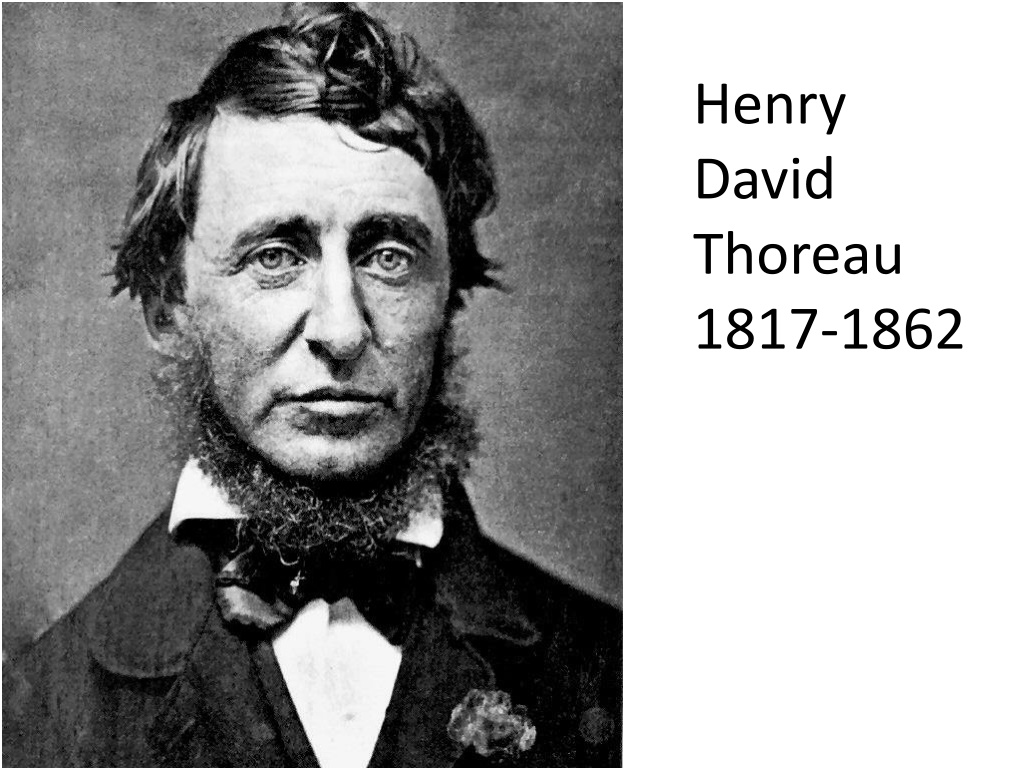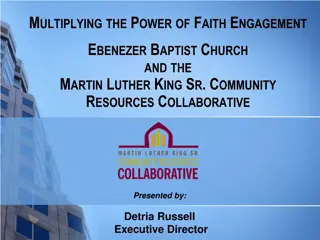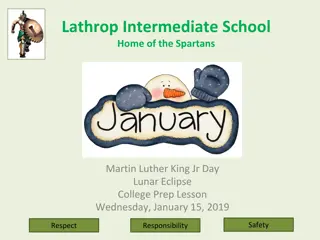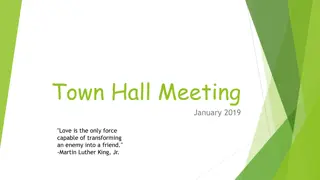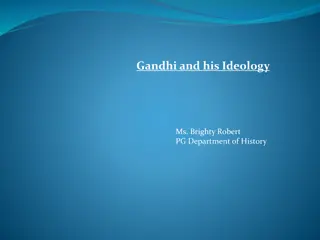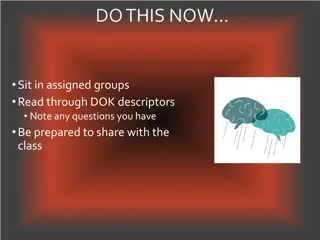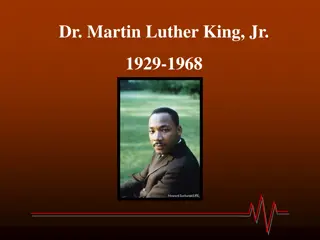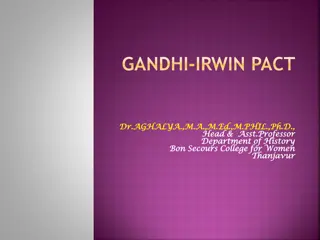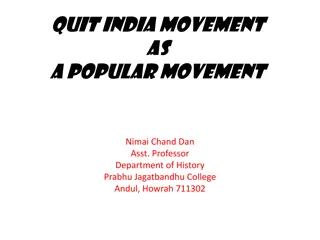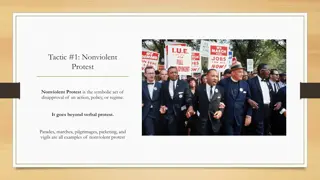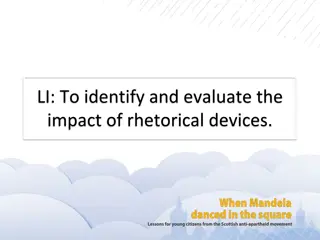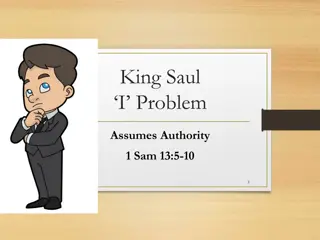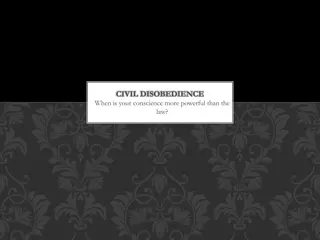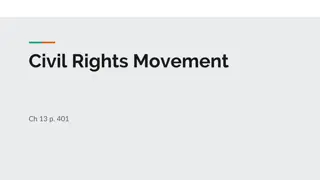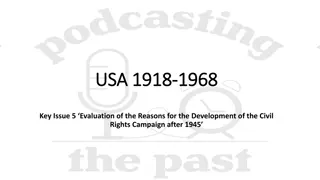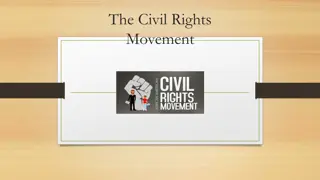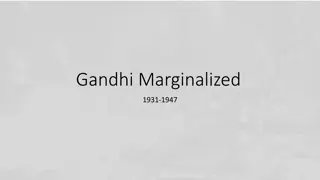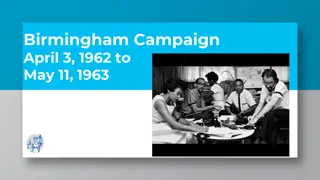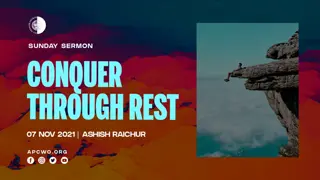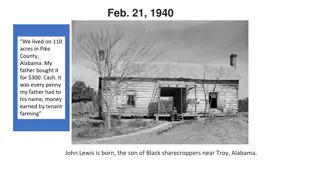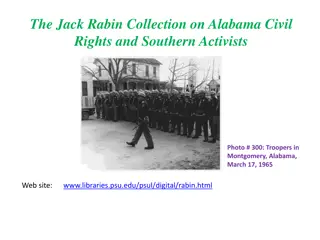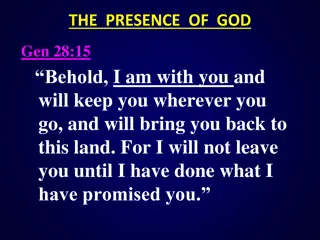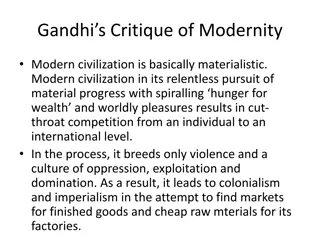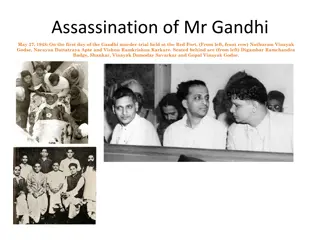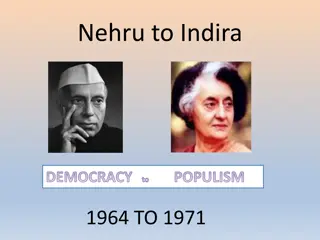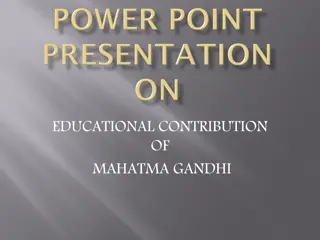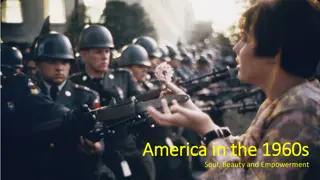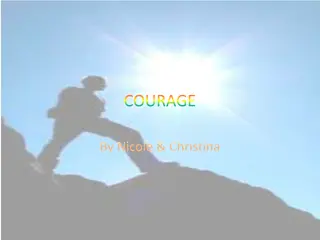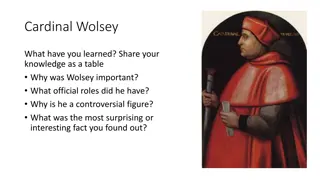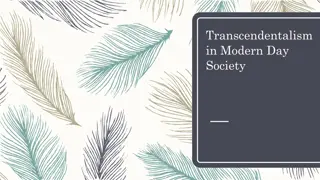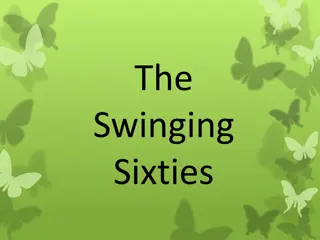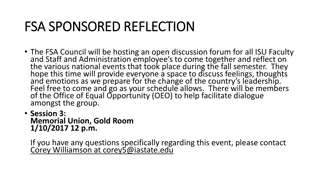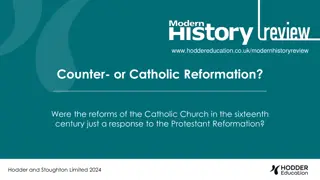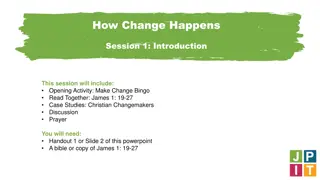Influence of Thoreau's Civil Disobedience on Gandhi and Martin Luther King Jr.
Gandhi's encounter with Henry David Thoreau's essay "Civil Disobedience" while in jail in South Africa sparked his implementation of nonviolent resistance called Satyagraha. This powerful concept of refusing to cooperate with injustices was adopted by Martin Luther King Jr., who considered Thoreau's work his first intellectual exposure to nonviolent resistance. The impact of Thoreau's ideas echoed through the lives and movements of these influential figures, shaping their fight against discrimination and injustice.
Download Presentation

Please find below an Image/Link to download the presentation.
The content on the website is provided AS IS for your information and personal use only. It may not be sold, licensed, or shared on other websites without obtaining consent from the author. Download presentation by click this link. If you encounter any issues during the download, it is possible that the publisher has removed the file from their server.
E N D
Presentation Transcript
Henry David Thoreau 1817-1862
In 1888, Gandhi sailed to England and studied to become a lawyer. His first job for an Indian company required that he move to South Africa. The ruling white Boers (descendants of Dutch settlers) discriminated against all people of color. When railroad officials made Gandhi sit in a third- class coach even though he had purchased a first-class ticket, Gandhi refused and police forced him off the train.
This event changed his life. Gandhi became an outspoken critic of South Africa s discrimination policies. When the Boer legislature passed a law requiring that all Indians register with the police and be fingerprinted, Gandhi, along with many other Indians, refused to obey the law. He was arrested and put in jail, the first of many times he would be imprisoned for disobeying what he believed to be unjust laws.
While in jail, Gandhi read the essay Civil Disobedience by Henry David Thoreau, a 19th-century American writer. Gandhi adopted the term civil disobedience to describe his strategy of non-violently refusing to cooperate with injustice, but he preferred the Sanskrit word satyagraha (devotion to truth). Following his release, he continued to protest the registration law by supporting labor strikes and organizing a massive non-violent march. Finally, the Boer government agreed to end the most objectionable parts of the registration law.
It was with a strong Christian faith in hand that Martin Luther King embarked upon his formal education. He said that Henry David Thoreau's essay, "Civil Disobedience," was his "first intellectual contact with the theory of nonviolence and resistance." It was primarily Thoreau's concept of refusing to cooperate with an evil system which so intrigued Dr. King.
That government is best which governs least.
That government is best which governs not at all.
We the People of the United States, in Order to form a more perfect Union, establish Justice, insure domestic Tranquility, provide for the common defence, promote the general Welfare, and secure the Blessings of Liberty to ourselves and our Posterity, do ordain and establish this Constitution for the United States of America.
I cannot for an instant recognize that political organization as my government which is the slave's government also.
What injustice exists today? What will we look back upon in 150 years and condemn the people of 2015 for doing?
I have heard some of my townsmen say, "I should like to have them order me out to help put down an insurrection of the slaves, or to march to Mexico; - see if I would go"; and yet these very men have each, directly by their allegiance, and so indirectly, at least, by their money, furnished a substitute.
Unjust laws exist: shall we be content to obey them, or shall we endeavor to amend them, and obey them until we have succeeded, or shall we transgress them at once?
Let your life be a counter-friction to stop the machine.
I know this well, that if one thousand, if one hundred, if ten men whom I could name - if ten honest men only - ay, if one HONEST man, in this State of Massachusetts, ceasing to hold slaves, were actually to withdraw from this copartnership, and be locked up in the county jail therefor, it would be the abolition of slavery in America. For it matters not how small the beginning may seem to be: what is once well done is done forever.
Under a government which imprisons any unjustly, the true place for a just man is also a prison.
http://www.deathpenaltyinfo.org/in nocence-list-those-freed-death-row
If they pay the tax from a mistaken interest in the individual taxed, to save his property, or prevent his going to jail, it is because they have not considered wisely how far they let their private feelings interfere with the public good .
Which is the quickest way to Boston? Should one expect to get to Boston more quickly by driving a car or by walking?
We do not ride the railroad; it rides us. We do not drive our cars; they drive us.
http://en.wikipedia.org/wiki/List_of_motor _vehicle_deaths_in_U.S._by_year
